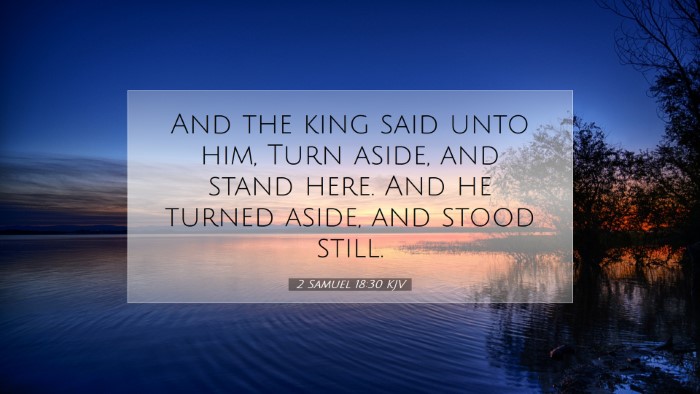Old Testament
Genesis Exodus Leviticus Numbers Deuteronomy Joshua Judges Ruth 1 Samuel 2 Samuel 1 Kings 2 Kings 1 Chronicles 2 Chronicles Ezra Nehemiah Esther Job Psalms Proverbs Ecclesiastes Song of Solomon Isaiah Jeremiah Lamentations Ezekiel Daniel Hosea Joel Amos Obadiah Jonah Micah Nahum Habakkuk Zephaniah Haggai Zechariah MalachiVerse
2 Samuel 18:1 2 Samuel 18:2 2 Samuel 18:3 2 Samuel 18:4 2 Samuel 18:5 2 Samuel 18:6 2 Samuel 18:7 2 Samuel 18:8 2 Samuel 18:9 2 Samuel 18:10 2 Samuel 18:11 2 Samuel 18:12 2 Samuel 18:13 2 Samuel 18:14 2 Samuel 18:15 2 Samuel 18:16 2 Samuel 18:17 2 Samuel 18:18 2 Samuel 18:19 2 Samuel 18:20 2 Samuel 18:21 2 Samuel 18:22 2 Samuel 18:23 2 Samuel 18:24 2 Samuel 18:25 2 Samuel 18:26 2 Samuel 18:27 2 Samuel 18:28 2 Samuel 18:29 2 Samuel 18:30 2 Samuel 18:31 2 Samuel 18:32 2 Samuel 18:33

